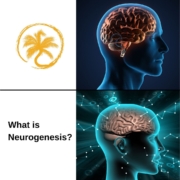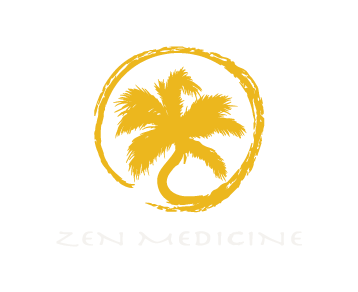How Your Brain Grows: Understanding Neurogenesis and How Your Brain Talks to Your Body
What is Neurogenesis and How Does the Brain Communicate?
Neurogenesis is a fancy word, but it’s easy to understand once you break it down. It means “making new brain cells.” Just like plants grow new leaves or flowers, your brain can grow new cells. These brain cells are called neurons, and they’re super important because they help you think, learn, remember things, and even feel happy.
But that’s not all! Your brain is also the boss of your whole body. It tells your muscles to move, your heart to beat, and even reminds you when you’re hungry or sleepy. The way your brain talks to your body is amazing, and we’re going to learn all about it!
Why Is Neurogenesis Important?
Your brain is like the control center of your body, kind of like how a captain controls a ship. Every time you think, move, or feel something, your brain is at work. Sometimes, the brain cells (neurons) get old, tired, or even damaged. That’s where neurogenesis comes in—it makes fresh, new neurons that keep your brain working its best.
Neurogenesis is important because it helps your brain stay sharp, especially when you’re learning new things or remembering important stuff, like someone’s name or how to ride a bike. It also helps your mood, making you feel better and less stressed.
When and Where Does Neurogenesis Happen?
You might think that you only grow new brain cells when you’re a baby, but that’s not true! You can keep making new brain cells even when you’re an adult. This mostly happens in a part of your brain called the hippocampus. The hippocampus is really special because it helps you remember things and learn new skills.
Neurogenesis happens throughout your life, though it can slow down as you get older. That’s why it’s important to do things that help your brain keep making new neurons.
How Can You Help Neurogenesis?
Here are some simple ways to help your brain grow new cells and stay healthy:
- Exercise: Moving your body is one of the best ways to help your brain. Activities like walking, running, swimming, or even dancing make your brain create new neurons. Plus, it makes you feel good too!
- Eat Healthy Foods: Certain foods are great for your brain. Fish like salmon, fruits like blueberries, and nuts like almonds are full of nutrients that help your brain grow new cells. Think of these foods as brain fuel!
- Sleep Well: Your brain needs rest to work properly. When you sleep, your brain gets the chance to recharge and create new neurons. That’s why it’s important to get enough sleep each night!
- Learn New Things: Every time you learn something new, your brain gets a workout. Whether it’s solving puzzles, learning a new language, or trying a new hobby, your brain is making new connections and growing new cells.
How Does the Brain Talk to the Body?
Now that we know about neurogenesis, let’s talk about how the brain communicates with your body. Your brain is like a big computer that sends messages all over your body using neurons. These neurons send messages through special signals called nerve impulses. Here’s how it works:
- The Brain Sends a Message: Let’s say you want to move your hand to pick up a glass of water. Your brain sends a signal to the neurons that are connected to your arm and hand.
- The Neurons Deliver the Message: The neurons carry this message super fast, kind of like a text message traveling across the world in seconds. The neurons tell your muscles to move your hand toward the glass.
- The Body Responds: Once the muscles in your arm and hand get the message, they move! You pick up the glass of water without even thinking about it.
This all happens in a split second, faster than you can blink! Neurons work together to send messages back and forth between your brain and the rest of your body. This is how your brain controls your heart, lungs, muscles, and even how you feel pain or pleasure.
Why Is This Brain Communication Important?
Without this communication, your body wouldn’t know what to do. Your brain wouldn’t be able to tell your heart to beat, your stomach to digest food, or your muscles to move. That’s why it’s so important to keep your brain and neurons healthy.
Neurogenesis, the process of making new neurons, helps your brain keep talking to your body. When you’re doing activities that boost neurogenesis—like exercising, eating healthy, and learning new things—you’re helping your brain communicate better with the rest of your body.
Conclusion: Take Care of Your Brain!
Your brain is an incredible part of your body. It’s always working, even when you’re asleep. By taking care of your brain, you’re making sure that it stays strong and healthy for years to come. Remember, you can help neurogenesis by exercising, eating the right foods, getting good sleep, and learning new things.
And next time you pick up a glass of water, remember all the hard work your brain is doing behind the scenes! It’s constantly sending messages to your body, making sure everything runs smoothly. Take care of your brain, and it will take care of you!


